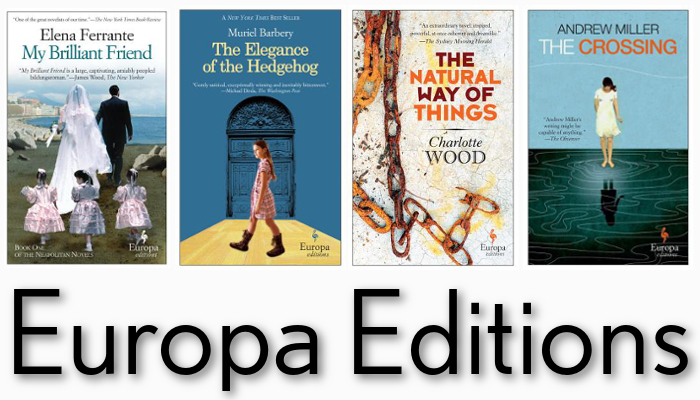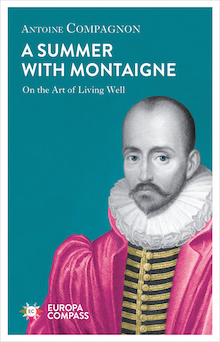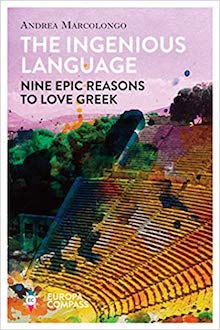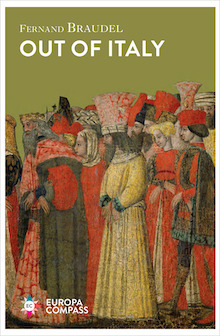Interview with Michael Reynolds about Europa’s Nonfiction Line

Michael Reynolds: As always, a combination of factors. Personal tastes and interests first of all. Several of us in-house are or have become of late avid readers of short- and long-form nonfiction, and as editors or publishers, whenever you’re reading something great, you can’t escape the “I wish I could publish/had published this” feeling. When those books are part of an entire genre that you’re not currently publishing in, well, you have to create a new imprint!
 Probably one of the reasons we are reading so much narrative nonfiction is because there is a prevailing global sense of philosophical or idealogical disorientation at the moment. Politically, it’s a shit show. Culturally, things are shifting dramatically, in most cases in a positive direction, but this still creates confusion and kind of cultural light-headedness. There are global crises — global to a degree that crises never have been before — that make the ground beneath our feet quake. These kinds of things render is eager for answers, or at least guidance, or, somehow paradoxically, alternative viewpoints. I will always think that the best books in which to “find answers” are novels. But finding answers in fiction is hard work, the work of a lifetime, and right now I’m finding it necessary to strike a more even balance in my own reading between fiction and nonfiction, in order to keep myself grounded, in a way. And the gamble with Compass is that I’m not alone. The Compass titles will be very much geared to the kinds of readers who also enjoy the fiction titles on our list. They will be very narrative, informative, erudite, most of all, entertaining, but will address some big questions more directly than our fiction titles seem to do.
Probably one of the reasons we are reading so much narrative nonfiction is because there is a prevailing global sense of philosophical or idealogical disorientation at the moment. Politically, it’s a shit show. Culturally, things are shifting dramatically, in most cases in a positive direction, but this still creates confusion and kind of cultural light-headedness. There are global crises — global to a degree that crises never have been before — that make the ground beneath our feet quake. These kinds of things render is eager for answers, or at least guidance, or, somehow paradoxically, alternative viewpoints. I will always think that the best books in which to “find answers” are novels. But finding answers in fiction is hard work, the work of a lifetime, and right now I’m finding it necessary to strike a more even balance in my own reading between fiction and nonfiction, in order to keep myself grounded, in a way. And the gamble with Compass is that I’m not alone. The Compass titles will be very much geared to the kinds of readers who also enjoy the fiction titles on our list. They will be very narrative, informative, erudite, most of all, entertaining, but will address some big questions more directly than our fiction titles seem to do. MR: We’re starting out with subjects ranging from pop-history, philosophy, and art history to literary travel writing and subjects of general interest written by scholars, journos, and experts in their respective fields with a talent for storytelling. It’s got to be very narrative, for, as I said, we’re hoping to bridge between general fiction- narrative nonfiction-readers. Most of the books we’ll be bring out with Compass will be on the shorter side—under 200 pp. This is a form that has a long, illustrious tradition in many parts of the world (and one that I love) and, I think, has been catching on in this market of late.
MR: We’re starting out with subjects ranging from pop-history, philosophy, and art history to literary travel writing and subjects of general interest written by scholars, journos, and experts in their respective fields with a talent for storytelling. It’s got to be very narrative, for, as I said, we’re hoping to bridge between general fiction- narrative nonfiction-readers. Most of the books we’ll be bring out with Compass will be on the shorter side—under 200 pp. This is a form that has a long, illustrious tradition in many parts of the world (and one that I love) and, I think, has been catching on in this market of late.MR: Not yet! I’ll let you know when I do have an idea.
MR: Many nonfiction titles in this market do well because their authors have a strong, preexisting platform — they’re talking heads, university professors, online celebrities, rich people with influence, etc. It’s not really the strength of their writing or the force of their ideas that make the books successful. The books and book sales are just sort of accessories to a successful rise to celebrity status thanks to other endeavors. There are notable exceptions of course, indeed too many to list.
 MR: No, I don’t think the market for fiction in translation is saturated. Perhaps the market is saturated for fiction . . . or for books . . . in general. There is no denying that publishers are publishing waaaay too many books and this makes it difficult for anything of any real quality to emerge, remain, and create consensus and/or conversation. In this, our industry is playing into and fomenting the general sense of atomization and disintegration and we should stop it! But fiction in translation is hardly the culprit. I think publishers of works in translation will start branching into other genres because it’s time, because it’s part of the process of normalization of the market and its relationship to international works.
MR: No, I don’t think the market for fiction in translation is saturated. Perhaps the market is saturated for fiction . . . or for books . . . in general. There is no denying that publishers are publishing waaaay too many books and this makes it difficult for anything of any real quality to emerge, remain, and create consensus and/or conversation. In this, our industry is playing into and fomenting the general sense of atomization and disintegration and we should stop it! But fiction in translation is hardly the culprit. I think publishers of works in translation will start branching into other genres because it’s time, because it’s part of the process of normalization of the market and its relationship to international works.
MR: A Summer with Montaigne—Antoine Compagnon spends a summer reading and reflecting on Montaigne, in 30 short chapters he takes readers on a stroll through key moments, key points/.
 The Ingenious Language: Nine Epic Reasons to Love Greek (via nine of its most intriguing quirks). A surprise and mega bestseller in Italy, by Andrea Marcolongo.
The Ingenious Language: Nine Epic Reasons to Love Greek (via nine of its most intriguing quirks). A surprise and mega bestseller in Italy, by Andrea Marcolongo.
Leave a Reply